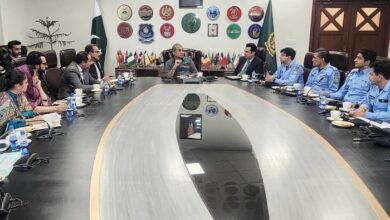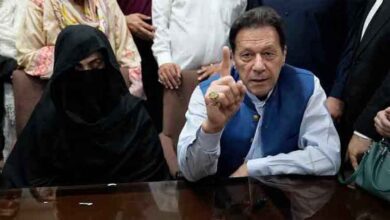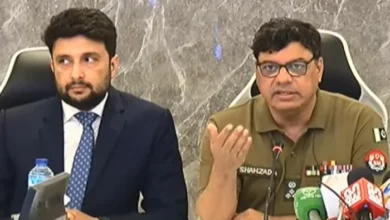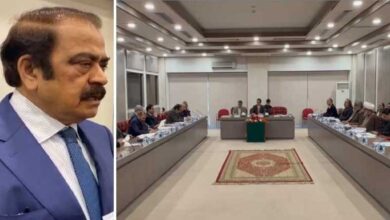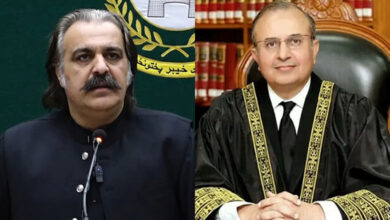President of the United Nations Security Council (UNSC) Evangelos Sekeris has expressed concern over the escalating tensions between India and Pakistan, hinting that a meeting could be convened to address the situation.
Sekeris, who is also Greece’s Permanent Representative to the United Nations, noted that such a meeting could serve as an opportunity for both countries to present their perspectives and potentially ease the rising tensions in the region.
During a press briefing on Thursday after taking over the rotating UNSC presidency for the month, Sekeris acknowledged the severity of the situation in South Asia, stating, “With the plain logic, this is something which might probably happen.”
The UNSC’s involvement in the issue could mark a significant development, as India traditionally opposes third-party intervention, viewing its disputes with Pakistan as bilateral matters under the 1972 Simla Agreement. India has historically argued that any external involvement could complicate the resolution process.
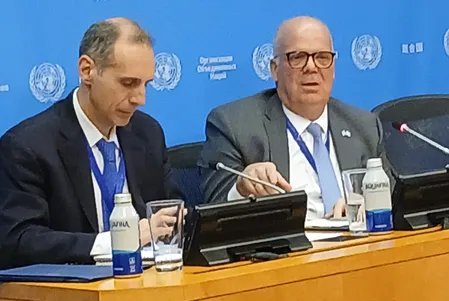
However, Sekeris emphasised that the UNSC, under the UN Charter, has the authority to call for a meeting on the matter. “We are very receptive to any request (for a meeting), and if the meeting with the Security Council will take place in any form, we will still hold the debate, as President, in a way to be faithful to a mandate,” he said, underscoring that the Council’s duty is to preserve international peace and security.
The possibility of a UNSC meeting, while still uncertain, remains on the table, especially as tensions continue to rise. Sekeris pointed out that such a discussion could provide a platform for expressing views and offering potential solutions, which might help de-escalate the situation. “It’s a difficult subject, but we are receptive to any request for a meeting,” he added.
While the UNSC has the power to convene on such matters, the Council may face practical challenges in taking decisive action, particularly given that permanent members, with the exception of possibly China, are unlikely to want to directly intervene out of respect for India’s stance on the issue. Pakistan, currently serving as an elected member of the Council, could play a role in pushing for such a meeting, but any consensus within the Council would likely require careful negotiation.
Sekeris also reiterated the Council’s strong condemnation of terrorism, including last month’s deadly attack in Pahalgam, which had been condemned both by the UNSC and Greece. The attack, claimed by The Resistance Front, a group linked to Lashkar-e-Toiba, had raised concerns about cross-border terrorism, a sensitive issue for India and Pakistan. The UNSC’s press statement on the attack did not specifically name the perpetrators, a decision that raised questions about whether Pakistan’s position influenced the outcome.
When asked about the omission, Sekeris remarked, “A press statement of whichever text, which is adopted by consensus unanimity, you cannot comment on the various stages of the negotiation, because it’s an internal document.” He acknowledged that the involvement of a Council member, such as Pakistan, could lead to a different outcome during such negotiations.
As the situation in South Asia remains tense, the UNSC’s role in facilitating dialogue and de-escalation could become increasingly crucial. Sekeris indicated that the Council would be prepared to meet “sooner rather than later” if the situation continued to deteriorate, emphasizing that the Council’s primary goal is to preserve global peace and security. The potential for a meeting reflects the UN’s ongoing commitment to addressing one of the most volatile conflicts in the world today, though the path to a meaningful resolution remains fraught with challenges.
Meanwhile, UN Secretary-General António Guterres has expressed his readiness to offer “good offices” to facilitate dialogue between India and Pakistan, following discussions with Indian External Affairs Minister S. Jaishankar and Pakistan’s Prime Minister. Guterres’ offer signals the UN’s continued involvement in seeking peaceful solutions to the South Asian conflict.


